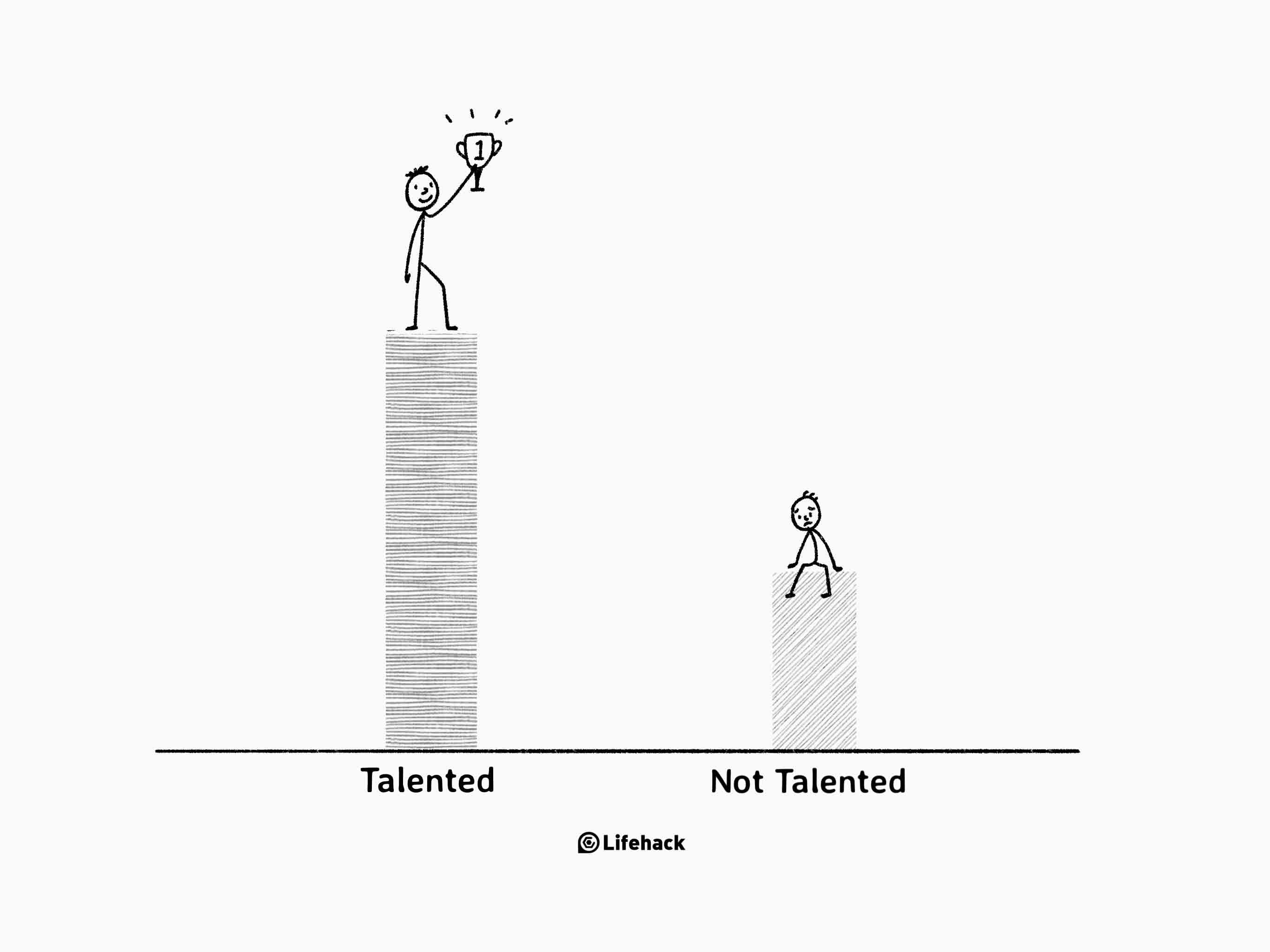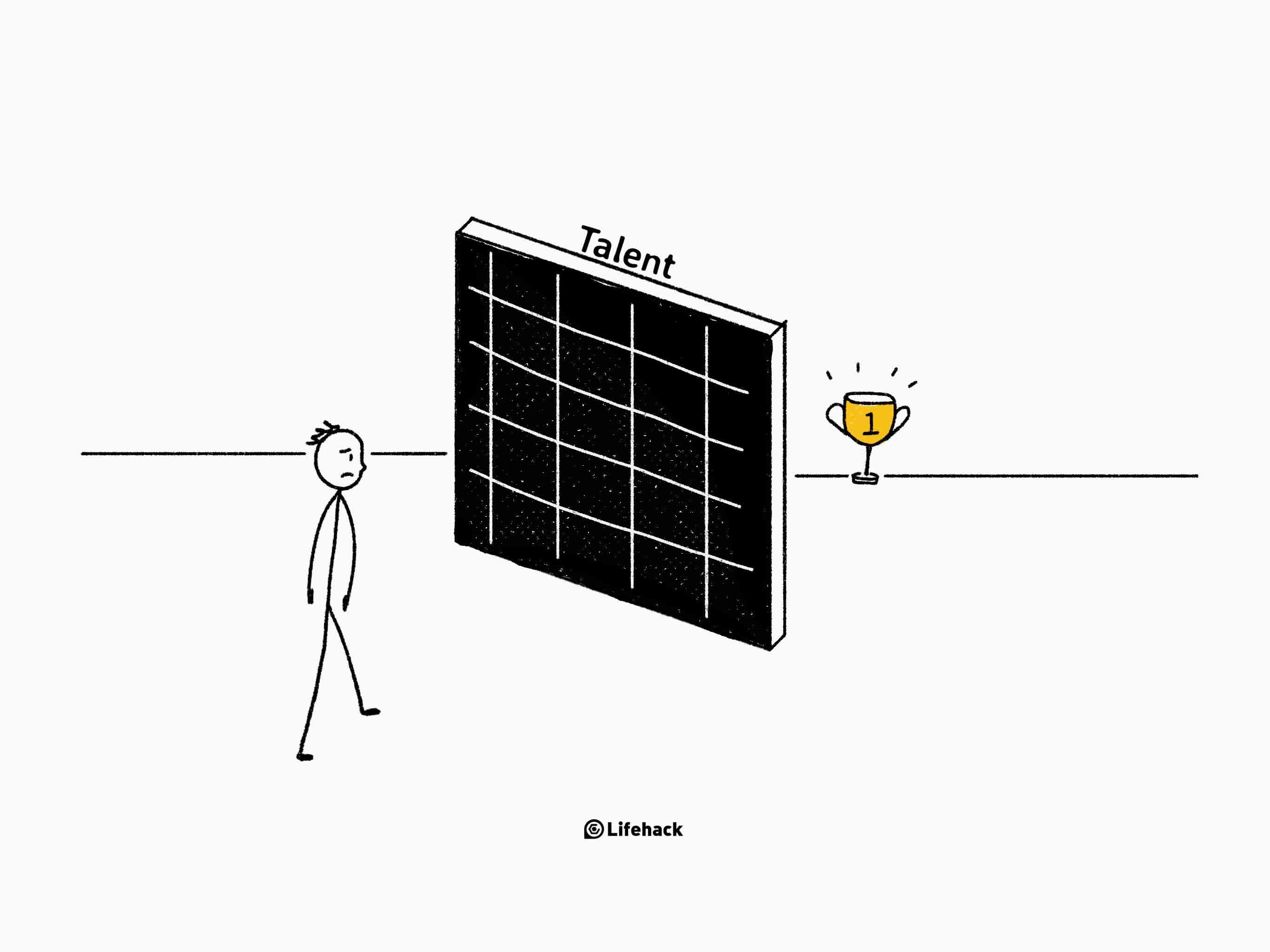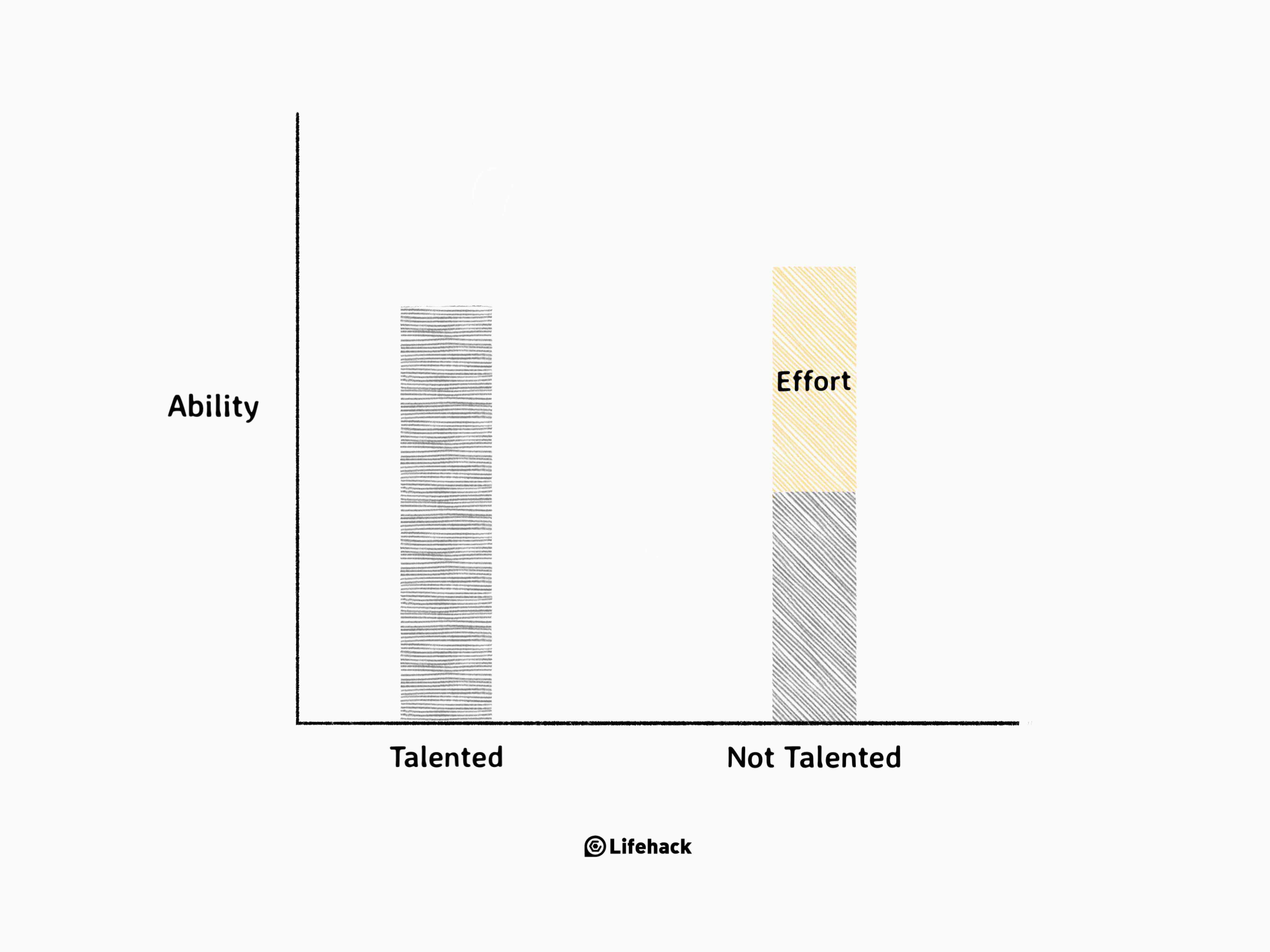This show is not just popular in America, however. Hugely successful versions of it can be found in countries in Asia, Europe, the Middle East and beyond. I’m sure you’ve seen at least one episode of the TV show, so you’ll know the format: lots of unknown people performing entertaining and sometimes unique acts (e.g. dance, magic and songs). As the name of the show suggests, the judges are looking for people or acts with an abundance of talent. For the average viewer at home, it’s easy to believe that talent is all that is needed to get on the show – and to potentially become rich and famous. However, the reality is somewhat different.
Are We Putting Too Much Emphasis on Talent?
These days, people are quick to praise a person’s natural talent. It’s as if people believe that natural talents count for more than skills developed over months and years. For instance, when watching a gifted sports person you’ve probably thought to yourself just how awesome they are. And then there are the famous IQ and aptitude tests – which quickly separate the elites from the masses. (Companies choose to hire those with natural talents.) Just take a look around at the news. Whoever has any major achievements will receive praise from the media and public for being so talented. The problem with this, is that talent gets continually put into the spotlight, while the real causes of success – effort and persistence – is seldom mentioned. This leads the majority of people to think that the only way to succeed in life is by having a strong or unique natural talent. The present heavy focus on talent could be preventing a lot of people from achieving success.
Don’t believe me? Just watch any of the current crop of dancing and singing contents. The majority of the time the judges will simply comment on skill and talent, and rarely (if ever), judge someone on how much effort or time they have put into learning something. This constant repetition of talent over effort is the cause of faulty beliefs, such as:
When someone is being praised for having talent, they may begin to rely on their talent, and stop putting in more effort to improve. On the other hand, someone who’s been told they’re not talented may begin to doubt their own abilities, and believing that they aren’t talented they stop trying to develop.
It’s easy to see how people can fall into the above traps, but it doesn’t have to be that way. For example, think about Celine who got on the show. Was her success really just because of pure talent? Or could it be that for years she practiced and studied?
In most cases, behind the natural talent, you’ll find people have also put in significant time and effort into developing it. So, to say that someone is “talented” actually rudely neglects all the effort they have likely put into doing what they do. It’s a bit like an iceberg. We only see the visible part of the iceberg, while the bulk of the iceberg remains invisible to us below the water. And then there’s the problem of people using talent as an excuse to do nothing. You hear it all the time: “I just don’t have talent in that area, so why should I bother competing with people who do?” In the above case, talent becomes a self-made wall that blocks people from reaching their true potential… which is on the other side of the wall.
It’s Really About the Effort You Put In
For sure, there are such things as natural talents. These are the inborn abilities that we are gifted from our family’s gene pool. It’s the same reason why some people are small, and some people are tall. Everyone of us has unique talents and abilities. You may remember from school how some of your friends could ‘naturally’ jump higher or run faster than you. And if you ever did gymnastics or martial arts, you’ll have seen the wide-range of natural flexibility that people exhibited. People’s unique talents and abilities don’t have to be obvious either. For example, over the years I’ve come to realize that I read much quicker than the average person. However, unless you and I participated in a speed-reading contest, then you’d probably remain blissfully unaware of my talent. But forget what you’ve been told. It’s not a talent race. It’s about the effort you put in.
Hidden behind every so-called talented person is a great deal of effort and persistence. For example, Walt Disney was fired from a newspaper for “having no original ideas” and “lacking imagination”; Michael Jordan locked himself in his room and cried, after being dropped from his high school basketball team; and Oprah Winfrey actually lost her job as a news anchor after producers said she “wasn’t fit for television.” Despite their individual setbacks, these three people went on to be tremendously successful, and of course, world famous. Looking back on their careers now, most people would assume that Disney, Jordan and Winfrey were blessed with natural talents. The truth, however, was very different. Sure, they were talented, but it was their efforts that really set them apart from the pack. Here’s how to discover your own unique talent and make it your biggest strength.
1. Locate your interest
People are much more satisfied with what they do, when they do things that match their personal interests. Ask yourself:
What do you care about most? What do you enjoy doing the most? What is the thing that you can’t bear at all?
Then, spend some time narrowing down the options, until you find your key interest. And, if after this exercise, you’re still unsure what you’re really into, try doing different things. For instance, Olympic gold medalist swimmer Rowdy Gaines knew from a very young age that he loved sports. When he reached high school, he tried baseball, basketball, football, golf and tennis before settling for swimming. In other words, he kept trying out different things until he found something that he fell in love with.
2. Build your strengths
Once you’ve set your heart on a particular interest, think about whether you have the basic skills to make a success of it. What skills do you need to be equipped with? What skills and knowledge can you enhance? What other areas could you improve upon? Let’s say that you’ve determined that your interest is in singing. To have a chance at success, you’ll need to invest regular amounts of your time in practicing singing. You’ll also probably want to enlist the help of a singing tutor.
3. Get feedback and improve
Once you start building up your strengths, you should turn to others for feedback. This is where a good tutor comes in. They can tell you where your weaknesses are, and how you can improve them. They can also offer you valuable support and encouragement as you develop your knowledge and skills. The high-achievers in life never stop learning. They continue to look for new ways to improve and keep reflecting on what they can do better. Instead of shunning feedback from others, they actively seek it. And then use this feedback to help them keep improving.
Effort Will Get You Much Further Than Talent
Great accomplishments don’t come simply from talent; instead, they come from immense effort. It’s this hard effort and persistence that separates the losers from the winners. The former just find it too easy to give on the road to success. While the latter make sure they reach their destination. I really hope this article has opened your eyes to the root causes of success. And if you need any help keeping going towards your goals, then check out one of my previous articles: The Only Time That Change Doesn’t Make You Better Find your interest. Dedicate yourself to it. And discover a life of success that you never thought was possible.



